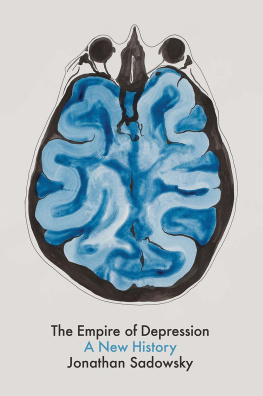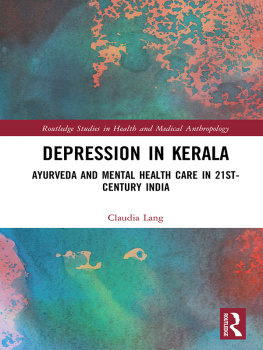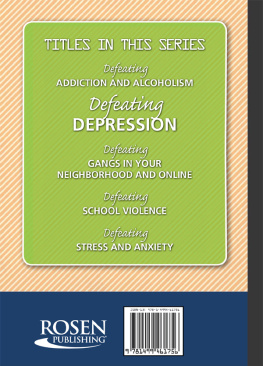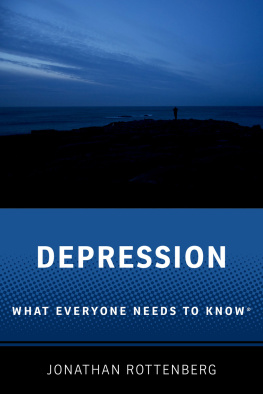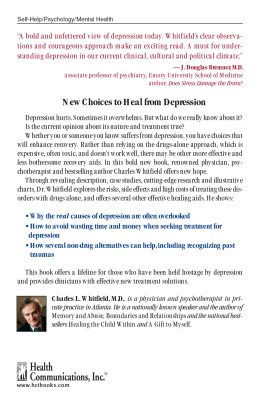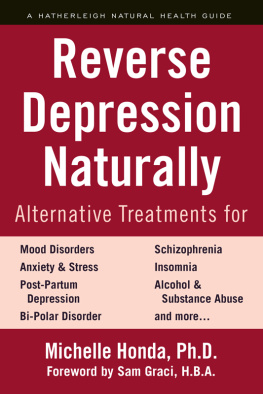
Dedication
For Laura, River, and Julia
The Empire of Depression
A New History
Jonathan Sadowsky
polity
Copyright Jonathan Sadowsky 2021
The right of Jonathan Sadowsky to be identified as Author of this Work has been asserted in accordance with the UK Copyright, Designs and Patents Act 1988.
First published in 2021 by Polity Press
Polity Press
65 Bridge Street
Cambridge CB2 1UR, UK
Polity Press
101 Station Landing
Suite 300
Medford, MA 02155, USA
All rights reserved. Except for the quotation of short passages for the purpose of criticism and review, no part of this publication may be reproduced, stored in a retrieval system or transmitted, in any form or by any means, electronic, mechanical, photocopying, recording or otherwise, without the prior permission of the publisher.
ISBN-13: 978-1-5095-3166-0
A catalogue record for this book is available from the British Library.
Library of Congress Cataloging-in-Publication Data
Names: Sadowsky, Jonathan Hal, author.
Title: The empire of depression : a new history / Jonathan Sadowsky.
Description: Cambridge, UK ; Medford, MA : Polity Press, 2021. | Series:
History of health and illness | Includes bibliographical references and index. | Summary: How depression colonized the world-- Provided by publisher.
Identifiers: LCCN 2020016685 (print) | LCCN 2020016686 (ebook) | ISBN 9781509531646 (hardback) | ISBN 9781509531660 (epub)
Subjects: LCSH: Depression, Mental. | Depression, Mental--History.
Classification: LCC RC537 .S293 2020 (print) | LCC RC537 (ebook) | DDC 616.85/27--dc23
LC record available at https://lccn.loc.gov/2020016685
LC ebook record available at https://lccn.loc.gov/2020016686
The publisher has used its best endeavors to ensure that the URLs for external websites referred to in this book are correct and active at the time of going to press. However, the publisher has no responsibility for the websites and can make no guarantee that a site will remain live or that the content is or will remain appropriate.
Every effort has been made to trace all copyright holders, but if any have been overlooked the publisher will be pleased to include any necessary credits in any subsequent reprint or edition.
For further information on Polity, visit our website: politybooks.com
Preface
When is sorrow sickness?
The writer Virginia Heffernan had a bad break-up. This happens to a lot of people. It can make you sad, sometimes for a long time. At some point, though, Heffernan began to feel that the grief over lost love was overtaken by something else, an illness. Worse, the depression seemed to grow on its own, to become something separate from the grief, disconnected from the break-up.
Trying to understand what was happening, she wondered if her search for happiness was the problem was she depressed because she expected too much out of life? Or perhaps, she thought (as many people with depression do), she was simply a bad person. Was the depression an excuse for not having a career was she simply lazy? Not an easy question to answer, because excessive self-criticism is a sign of depression. Was her depression an excuse for laziness? Or was that very question the depression talking?
These puzzles are not new. What happened next, though, is a product of more recent history and the history of a recent product. Heffernan got a prescription for antidepressants. Sitting on a train, she poured the pills into her hand and looked at them wondering if the chasm she felt in herself could truly be filled by these chemicals. A lot of people have been asking this question in recent decades. The question holds a mix of hope and fear. Many feel some relief if the answer is yes. Not only relief from the illness, but also from the torment of doubt over whether they have an illness. If a medicine works, that might reassure that the illness is real. Still, many look at these chemicals with worry, and not just because, like all medicines, they can have unwanted side effects. It can also seem weird that your basic outlook optimistic or pessimistic, self-hating or self-loving might be a chemical process. While these questions have grown acute in the antidepressant era, the link of body to mood, of stuff to spirit, has been an enigma for centuries. And nothing arouses the puzzlement as much as the terrible pain on which we paste the label: depression.
This book is about that pain. A pain that isolates, but one always set in a social domain. A pain of soul and body that reminds us how hard it is to say where soul ends and the body begins. A pain found in diverse places and times, changing its features to suit the village where it arrives. A pain that devours hope, and leaches pleasure, ambition, and simple ease. One doctor said there is only one worse illness, rabies. Whether he was right or not, few maladies match depressions super power: to drain life of value, to turn what was golden into mud.
It is also a pain with a history. The history lies in its morphing of form and expression, and in the countless efforts to grasp its origin, meaning, and essence efforts that are necessary and useful, and yet always fall short. And it lies in the changing ways healers have tried, with incomplete success, to provide relief.
I stress several themes. One is that depression is shaped by history and culture, but that comparisons across time and space are possible, and essential. A second is that we do not have to choose between understandings of depression as biological, psychological, or social. This false choice is a product of recent history. We call depression a mental illness. Critics of psychiatry sometimes complain that the problems named by that term are not really illnesses. I am more concerned about the other half of the phrase they are never just mental. Depression always involves the body. A third is that there is a politics to depression, a politics of inequality. This is another area where some have posed what I think is a false choice, between a medical model and a social model. Health, illness, and healing are always set in a social context, and showing that they are does not make them less medical. As I am completing this book, the COVID-19 pandemic is unfolding. In addition to its ravages on human health, it is shining a light on many social problems, including class and race inequality, the inadequacy of the public health and medical insurance systems in many societies, and the bigoted blaming of peoples for illness, a scapegoating that medical historians see resurfacing with dismal predictability. Depression also puts a spotlight on many social problems. It does not cease being a medical problem because of that any more than a virus does. A fourth is the classic historians caution against scorning the past. Much of the history of depression is made of efforts by smart and concerned people, doing their best with the knowledge available, to understand and treat it. As in other areas of medicine, some zealots have pushed their favored approach too far. Many others have sounded cautions, seeing the incomplete state of psychiatric knowledge.
Many books on the history of psychiatry are scathing catalogues of its harms. Psychiatry has harmed a lot of people, through imprisonment, stigmatization, invasive physical treatments, or misguided over-reliance on drugs. Even talk therapy, often assumed to be inherently more humane, can be abusive or harmful. Saying this is not to be against psychiatry. Its a matter of empirical fact, amply shown by historians of psychiatry. We should not whitewash this history, but we also have to reckon with how psychiatry has helped people. The vast majority of depression patients are voluntary. They return to their doctors because treatment helps them to feel better and live their lives closer to the way they wish. Many people without access to treatment would dearly like it.
Next page
